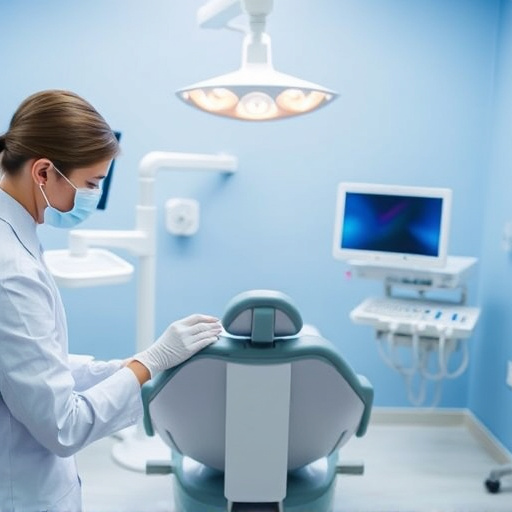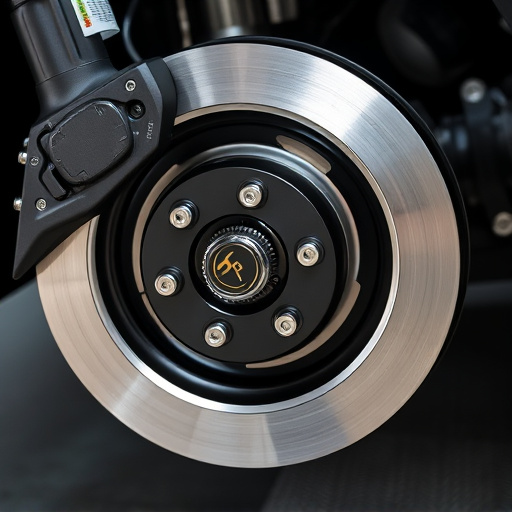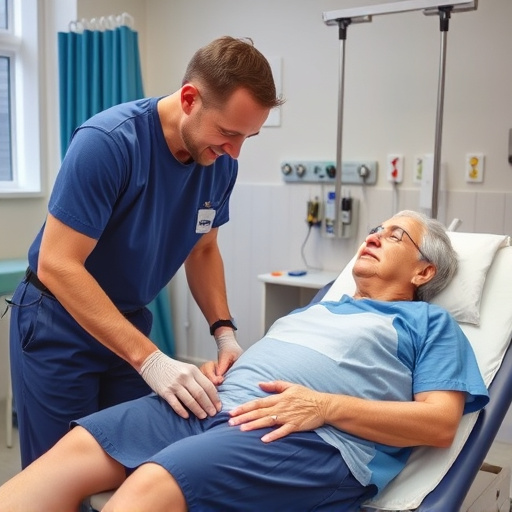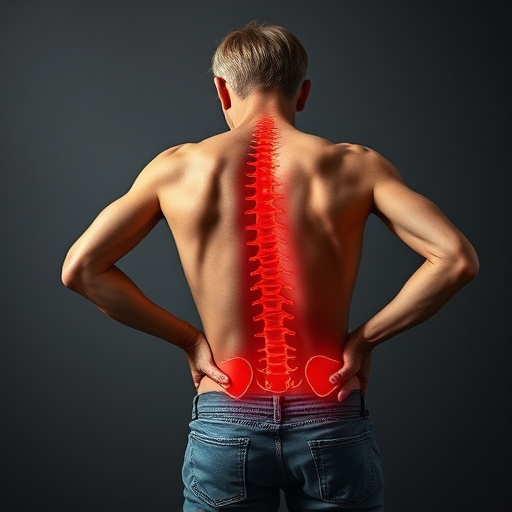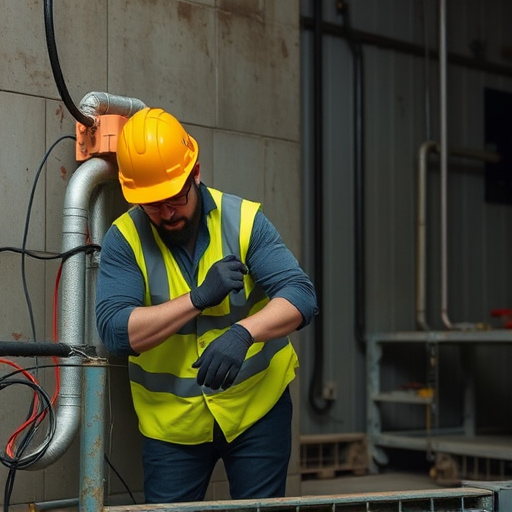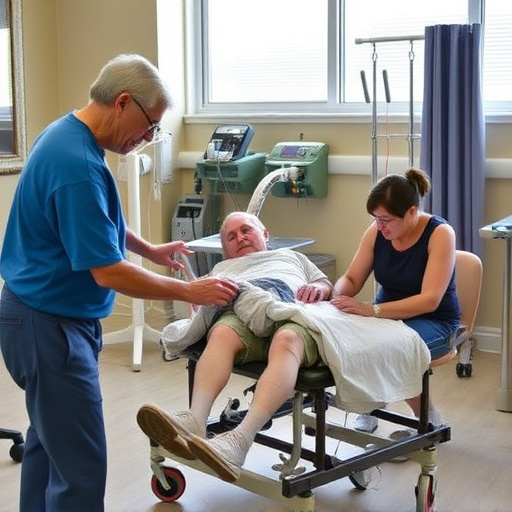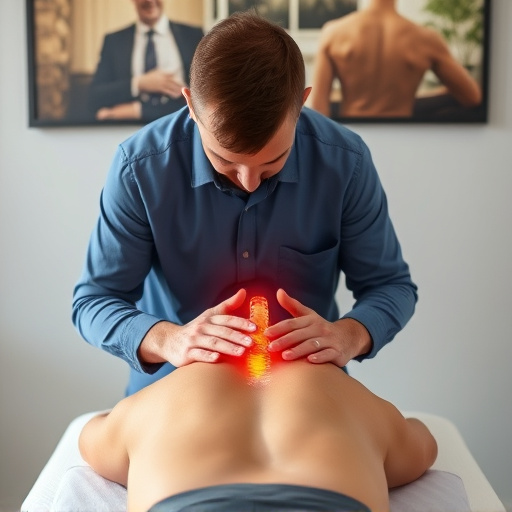Swift and expert motor vehicle accident care, including on-scene treatment and stabilization, enhances survival rates and minimizes secondary injuries. Comprehensive medical assessments identify all injuries, leading to tailored treatment plans focusing on symptom relief, reduced inflammation, and optimized healing. Rehabilitation, beginning with emergency stabilization and chiropractic/physical therapy, restores function for a safe return to daily activities. Motor vehicle accident care prioritizes holistic well-being for successful recovery.
In the immediate aftermath of a motor vehicle accident, understanding the expected timeline for care is crucial. This comprehensive guide breaks down the key stages of full motor vehicle accident care, from the initial response and emergency treatment to rehabilitation and return to normalcy. By navigating these phases, individuals can better prepare for both short-term recovery and long-term well-being, ensuring they receive the necessary support at every step.
- Immediate Response and Emergency Care
- Medical Assessment and Treatment Plan
- Rehabilitation and Return to Normalcy
Immediate Response and Emergency Care
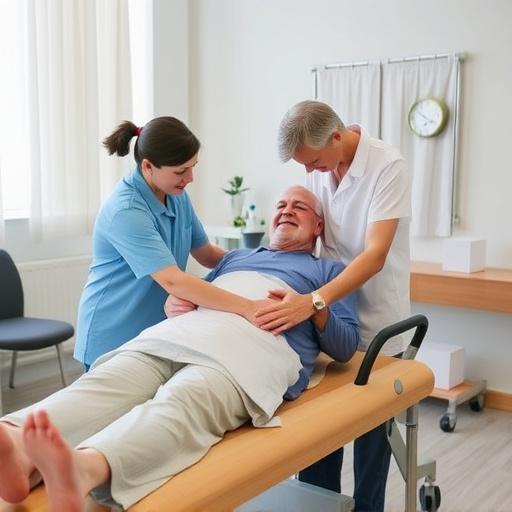
In the chaotic aftermath of a motor vehicle accident, every second counts when it comes to ensuring proper care and managing potential injuries. The immediate response is critical for effective emergency care, especially for severe cases. First responders and emergency medical services (EMS) are equipped to handle life-threatening situations, providing on-scene treatment, stabilisation, and swift transportation to a suitable medical facility. This rapid action significantly improves the chances of positive outcomes for accident victims.
During this initial phase, patients might receive oxygen therapy, intravenous fluids, or medication to manage pain and prevent complications. Paramedics also assess and document injuries, ensuring that all critical care needs are addressed before transfer. Timely intervention in motor vehicle accidents is key to preventing further damage and facilitating a smoother transition into the subsequent stages of medical care, including personalised treatment plans for sports injury recovery or other types of car accident injuries.
Medical Assessment and Treatment Plan

After a motor vehicle accident, the first step in care is a thorough medical assessment. This involves a comprehensive examination to identify all injuries and assess their severity. Healthcare professionals will carefully evaluate physical symptoms, range of motion, and overall functional ability. During this process, specific attention is given to identifying conditions like chronic pain or sciatica, which often require specialized treatment plans.
A tailored treatment plan is then developed based on the assessment findings. This might include a combination of interventions such as rest, medication for pain management, physical therapy, and in some cases, advanced therapies like shockwave therapy for pain. The primary goal is to alleviate immediate symptoms, reduce inflammation, and facilitate healing while considering long-term strategies to prevent chronic pain relief and optimize patient recovery from motor vehicle accident care.
Rehabilitation and Return to Normalcy
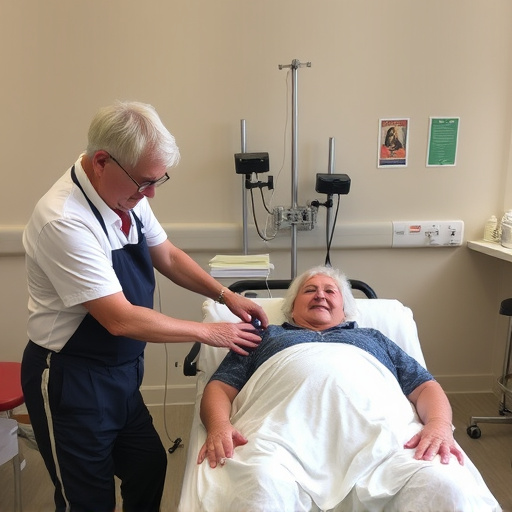
Rehabilitation and the journey back to normalcy are integral parts of motor vehicle accident care. After an accident, individuals often experience a range of injuries, including soft tissue damage, whiplash, and even more severe traumas. The initial phase of care typically involves emergency medical treatment to stabilise any life-threatening conditions. Once stabilised, patients can expect a comprehensive approach to car accident injury care. This may include chiropractic treatments to address spinal misalignments and alleviate pain related to whiplash or other neck injuries. Physical therapy is another crucial component, helping individuals regain strength and mobility, especially in cases of soft tissue injuries that can impact range of motion.
As patients progress through their rehabilitation, they gradually return to normal activities. This process requires careful monitoring by healthcare professionals who tailor treatments to individual needs. The goal is not only to manage pain but also to restore function, ensuring individuals can resume their daily routines and, eventually, return to work or other pre-accident activities with appropriate adjustments. Effective motor vehicle accident care considers the holistic well-being of the patient, fostering a safe transition back to a normal, active lifestyle.
A comprehensive timeline for full motor vehicle accident care involves immediate response and emergency medical services, followed by a thorough medical assessment and tailored treatment plan. This process sets the foundation for successful rehabilitation, enabling individuals to gradually return to their pre-accident state of well-being. Effective management of each phase is crucial for optimal recovery outcomes in motor vehicle accident care.
